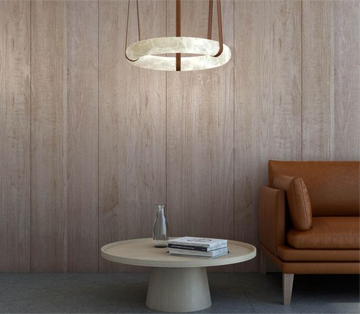Good news for patent litigating in France!
On 7 December 2021, it was just decided that the Parisian Judges have jurisdiction and the power to assess the compliance of the essential patentee PHILIPS based in the Netherlands with its obligations under French law, and by the French Society governed by the French law of August 1. 1901, ETSI (European Telecommunications Standards Institute) based in Valbonne-Sophia Antipolis (France), even at the request of a third party like XIAOMI, the Chinese 3G and 4G mobile phone manufacturer [case docket number 20/12558].
The claims
In the absence of a license between them since 2016, in October 2020, PHILIPS sued XIAOMI for the infringement of several of the patents of its portfolio, before four separate courts under their own local law: German, Spanish, Dutch, and British.
One month later, as XIAOMI considered that it should have benefited from a license on FRAND terms, it sued both PHILIPS and ETSI before the Paris First Instance Court based in essence on the same factual grounds [p.15 final § of the Order of the Pre-trial Review Judge], which was that each of them had failed to comply with the intellectual property rights standards devised by ETSI. XIAOMI specified that the intent of its claims was to obtain that ETSI guarantee it access to the standards it establishes [p.4 § 4 of the Order], and consequently to the common market to which ETSI must aim [p.9 § 5 of the Court Judgment].
It also claimed that PHILIPS had failed to comply with its commitments as imposed by ETSI when it joined the association contract [p.4 final paragraph of the Court Judgment], particularly that of irrevocably granting XIAOMI, as well as any other manufacturer or operator that requests it, an irrevocable license on FRAND terms as described inter alia in articles 6, 8, and 15 of Annex 6 of ETSI’s Rules of Procedure [p.4 § 3 and p.5 § 3 and 4 of the Court Judgment].
The decisions
“Although the claim is contractual in nature, there is no doubt here that it requires the examination of the infringement of a patent right, and in this case of a portfolio of patents that its owner has declared to be essential” [p. 12 § 4 of the Order]. Consequently, the Paris Patent Court of Justice duly has material jurisdiction.
Referring to the law as stated by the CJEU on the jurisdiction of a Judge in EU, in the event of multiple defendants [p.12 final § et seq. of the Order], the Paris Pre-trial Review Judge considered that both the society contract between the defendant PHILIPS, although it is based in the Netherlands, and the other defendant ETSI, based in France, as well as the tripartite agreement to which XIAOMI is a third-party beneficiary through PHILIPS’ commitment to ETSI (through the French mechanism of “stipulation for third parties”, art. 1205 et seq. of the Civil Code) [p. 16 § 1 and 4 of the Order] are all subject to French law, which does not “prevent the recognition of an identical legal situation” [p.16 § 1, 2 and 4 of the Order].
Moreover, the following “would be irreconcilable and not simply divergent” [p. 16 § 3 of the Order]:
- “a decision enjoining ETSI to contribute to the grant of a license, if necessary by implementing the measures provided by its internal rules,” and
- a decision by another judge “finding that […] PHILIPS did satisfy [its] obligation to offer […] XIAOMI a license on FRAND terms,
- which could happen if XIAOMI’s claims were to be ruled upon separately.“
Lastly, there is no reason for the French Court to stay the proceedings pending a decision of one of the four foreign judges due to rule on the matter, since none of them is in charge of the license on FRAND terms requested by XIAOMI in France, particularly regarding the royalty rate and the basis thereof [p. 16 § 6 of the Order].
The future
It remains to be seen:
- in the event of failure of the Mediation proposed by the French Court, particularly under the auspices of WIPO [p.18 final § of the Order],
- whether XIAOMI’s claims are well-founded [p.10 § 3 and 4 of the Judgment], either:
- on PHILIPS’ irrevocable undertaking to grant it an irrevocable license, or
- on ETSI’s alleged “wrongful passiveness” [p.9 § 6 of the Judgment].
Conclusion
Above all, it is a positive step to see the French Court take an international perspective in assessing patent law situations outside France, especially when they are subject to French law.
Let us hope with equal force that, for patent infringements as well, it will likewise go on to assess acts of infringement committed also outside its territory – at least in Europe – according to their local law. As for victims of infringement of their works, trademarks, designs, and even of unfair competition, this would indeed be very useful for companies, especially French ones, which could not or may not want to face the challenges of our forthcoming “Unified Patent Court”.





